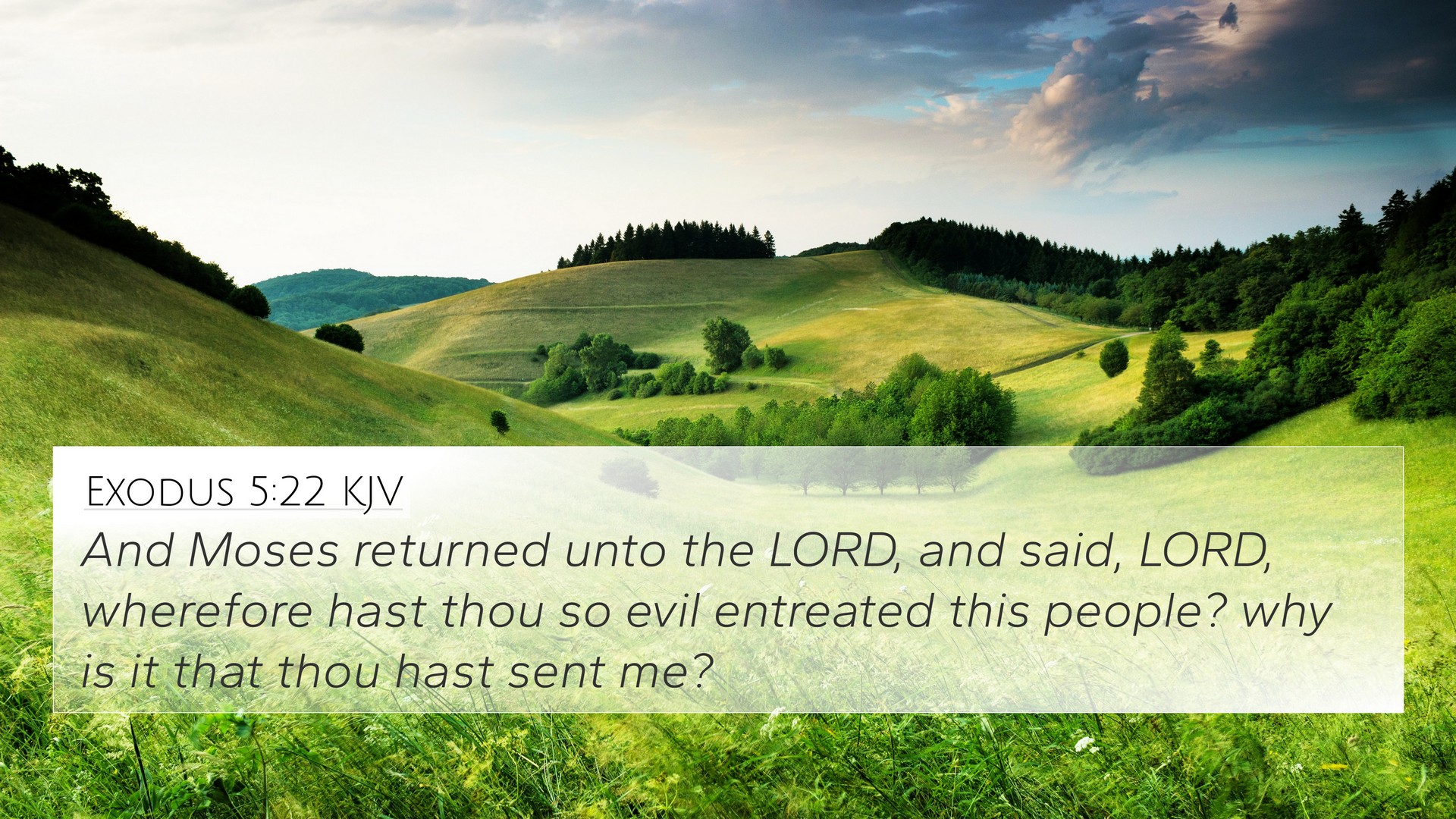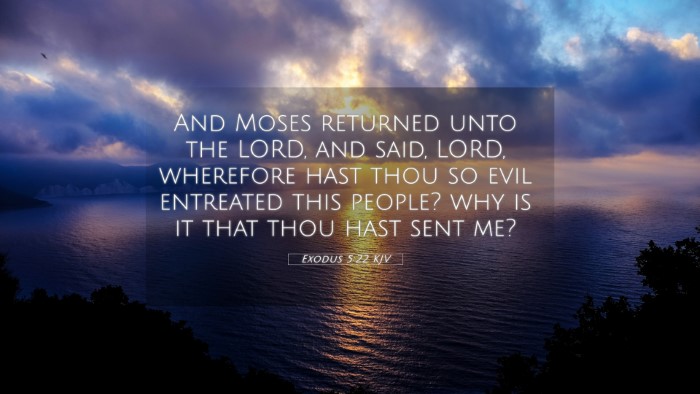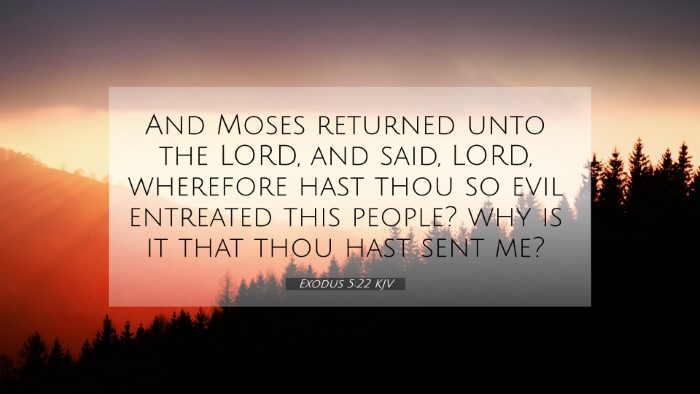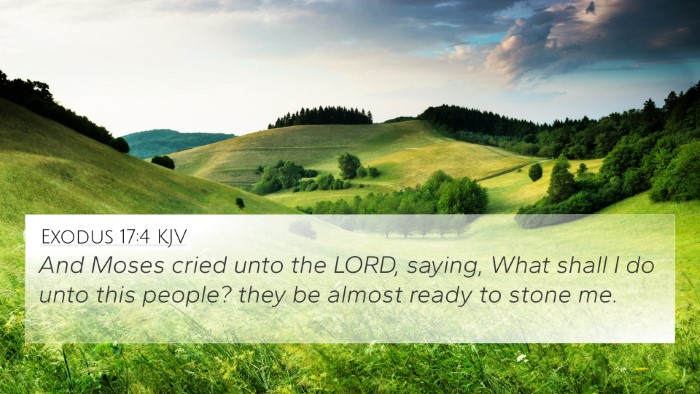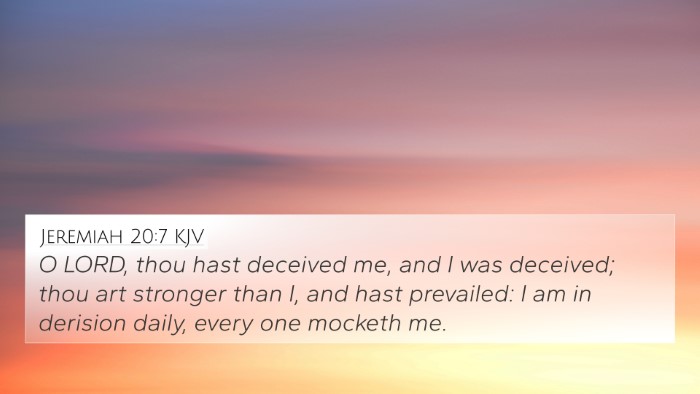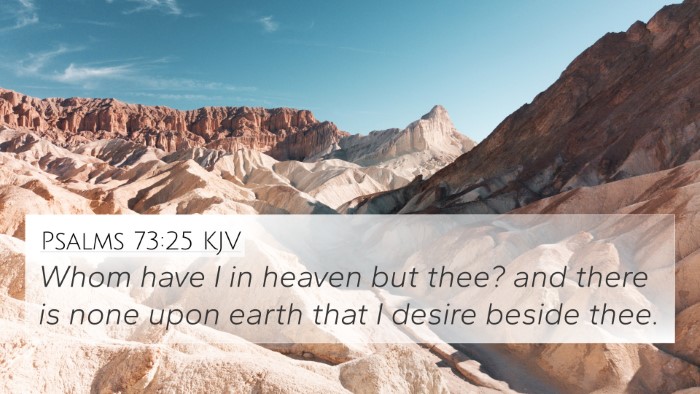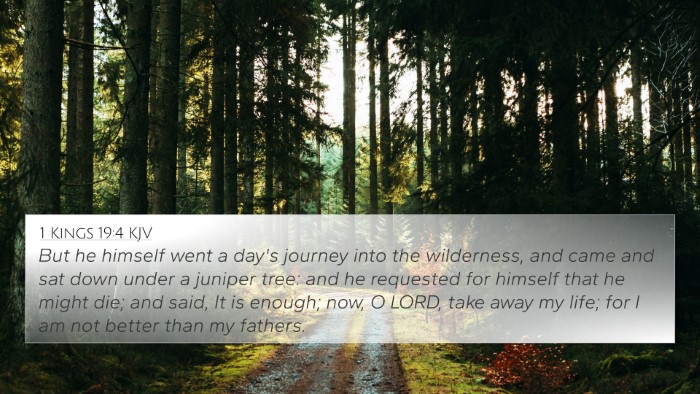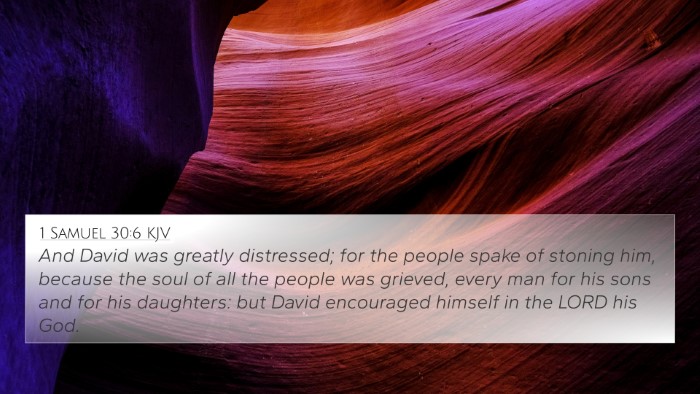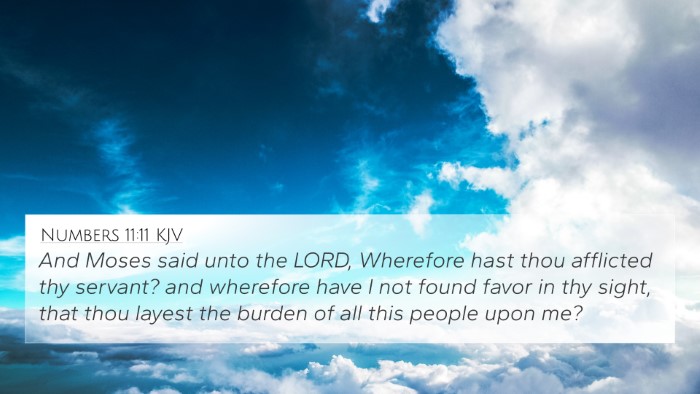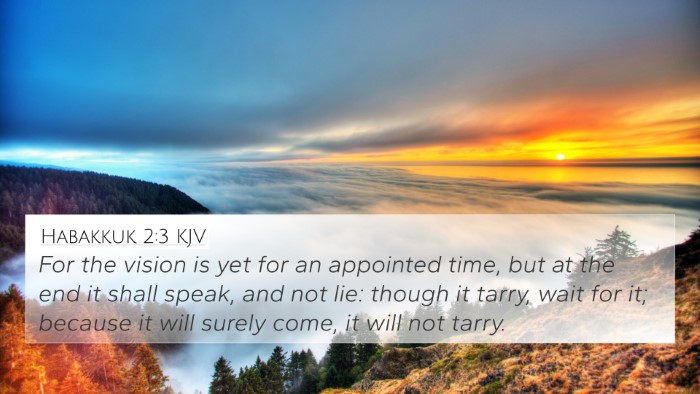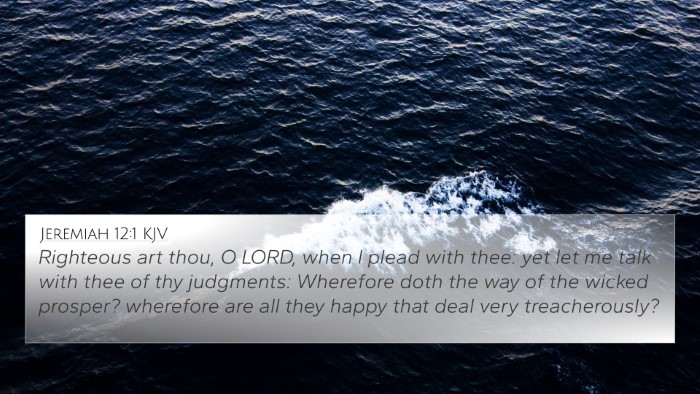Exodus 5:22 - Summary and Interpretation
Verse: Exodus 5:22 states, "And Moses returned to the LORD, and said, O Lord, wherefore hast thou so evil entreated this people? why is it that thou hast sent me?"
Meaning and Context
This verse occurs in a profound moment of despair for Moses after he faces Pharaoh. Moses, having delivered God's message to Pharaoh to let the Israelites go, finds himself confronted with increased oppression of his people instead of their liberation. This reflects a common theme in the Bible where initial obedience to God's call leads to unforeseen difficulties.
Insights from Public Domain Commentaries
-
Matthew Henry:
Henry notes that this passage reflects Moses' deep concern for his people. Instead of immediate success, Moses encounters resistance, leading him to question God's purposes. This shows the struggle between divine promises and present realities.
-
Albert Barnes:
Barnes emphasizes Moses' feelings of discouragement and confusion. He highlights that Moses was genuinely troubled, questioning the effectiveness of his mission. This honest questioning is essential in the relationship between believers and God.
-
Adam Clarke:
Clarke points out that Moses' complaint stems from an expected positive outcome that did not materialize. He notes how this interaction shows God's patience and willingness to engage with human emotion and doubt.
Cross-References and Related Verses
Understanding Exodus 5:22 becomes richer when we explore its connections to other scripture passages. Here are some cross-references that related to the themes present in this verse:
- Exodus 3:10 - God's commissioning of Moses to lead His people.
- Exodus 4:13 - Moses' reluctance and desire for someone else to be sent.
- Exodus 6:9 - The continued struggle of the Israelites despite God's promises.
- Psalm 77:1-3 - A psalm expressing distress and seeking God in times of trouble.
- Isaiah 53:3 - The theme of suffering and the expected response to suffering.
- Job 30:20 - Job's cry to God during his suffering resonating with Moses' despair.
- Jeremiah 20:7 - A feeling of betrayal similar to what Moses expresses.
- Matthew 5:12 - The assurance that suffering may lead to greater rejoicing in God's kingdom.
- Romans 8:28 - The promise that "all things work together for good," applicable in trying times.
- 2 Corinthians 1:8-9 - Paul’s explanation of struggle and comfort aligning with Moses’ experience.
Thematic Connections
This verse is a critical point for exploring the themes of faith in adversity, doubt toward God’s promises, and the human experience of suffering. These themes connect historically and spiritually within the broader narrative of Scripture.
Tools for Further Study
For those looking to deepen their understanding through cross-referencing, consider utilizing the following tools:
- Bible Concordance: A comprehensive index to find specific words and themes.
- Bible Cross-Reference Guide: A structured resource for discovering related verses.
- Cross-Reference Bible Study: Methods utilizing interconnected verses for thematic exploration.
- Bible Reference Resources: Books and online tools that aid in identifying scriptural links.
- Identifying Connections: Techniques for tracing themes across Old and New Testament passages.
Conclusion
Exodus 5:22 serves as a reminder of the struggles inherent in faith, particularly when confronting apparent setbacks in fulfilling God's will. By examining the rich tapestry of related scriptures and commentaries, one gains a greater understanding of not only this specific verse but also the overarching narrative of God's persistent engagement with humanity.
Final Thoughts
Understanding and interpreting scripture involves looking at connections between Bible verses and linking Bible scriptures. The study of comparative Bible verse analysis can provide illuminating insights, reaffirming the presence of God through trials and tribulations.
